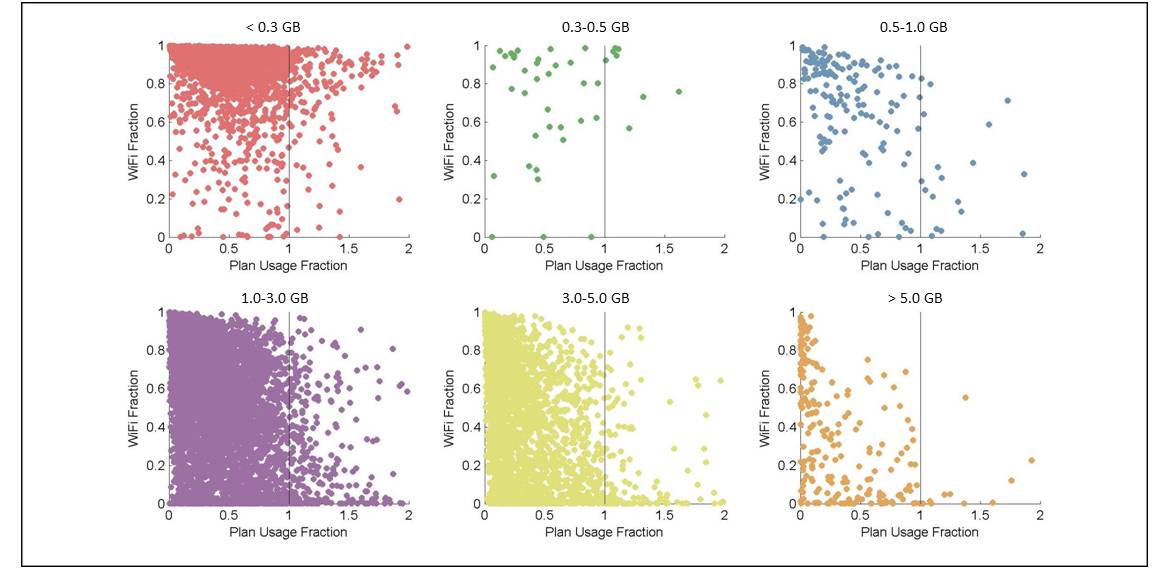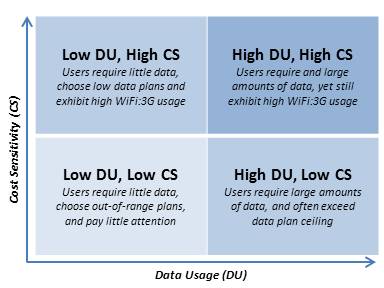Abstract: The recent proliferation of electronic products has led to a strong unmet need for understanding environmental implications of new technologies. According to Nielsen, 66% of Americans ages 24-35 own a smartphone, providing strong evidence that this technology can be considered ubiquitous. However, a majority of users and service providers are not sensitive to energy implications of data usage. As parameters affecting data delivery and usage are primarily driven by user behavior, this study is focused on using empirical data to investigate its correspondence to energy footprint. A large cohort of smartphone users (n = 21,853) and the means for which data is accessed, i.e. via 3G/LTE or WiFi, is examined to develop a model for estimating the energy cost of the various modes of data usage. Finally, alternate business scenarios are developed through simulating behavior change in cohorts based on existing data and then assessed with regards to economic and environmental efficiencies.

The above figure shows behavior profiles by plotting the plan usage fraction (where 1 equals full usage of a user’s plan) against the WiFi Fraction (where 1 means that all data accessed is via WiFi. This allows a visualization of all data plan buckets.

